Autumn time is cold season. We give tips on which medicinal herbs from the garden can be used to quickly get a nasty cold under control.
Who does not know this - the first few weeks of the cold season have hardly set in and your nose is already running or your throat is scratching. It is often not necessary to put on medication straight away, because many herbs from your own garden are ideal helpers for colds. Below we have listed the best medicinal herbs for colds and their special effects:
contents
- chamomile
- elder
- Ribwort plantain
- thyme
- sage
- Linden tree
- licorice
- fennel
chamomile
As tea, tincture, gargle solution or as an additive when inhaling chamomile a long-proven home remedy for colds. The medicinal herb kills germs, relieves discomfort on the mucous membranes and inhibits inflammation and pain. In the case of a flu-like infection, it is therefore one of the most beneficial medicinal herbs that can provide relief from colds and coughs as well as from mucus and sore throats.

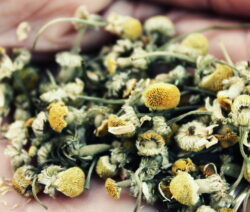

elder
The elderberry flowers help sweat out germs and can even loosen stubborn mucus. They are therefore also a valuable aid when there is a tendency towards inflammation of the paranasal sinuses. Elderberry juice also helps with sore throats and strengthens your own immune system.
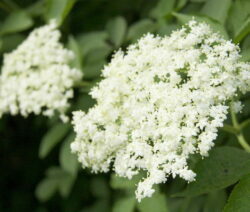
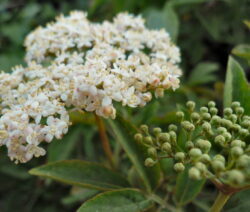
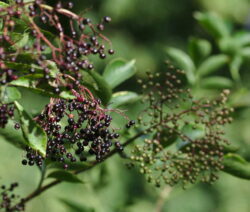
Ribwort plantain
Some may know the ribwort plantain as an ingredient in cough syrup, because this is where it is often used as an efficient helper. It loosens coughs and stubborn secretions, making it easier to expectorate, relieve irritation and calm the mucous membranes - a real all-rounder against annoying coughs. But it is not only useful in the classic cough syrup - when used as a tea or gargle solution, ribwort is beneficial against coughing problems.
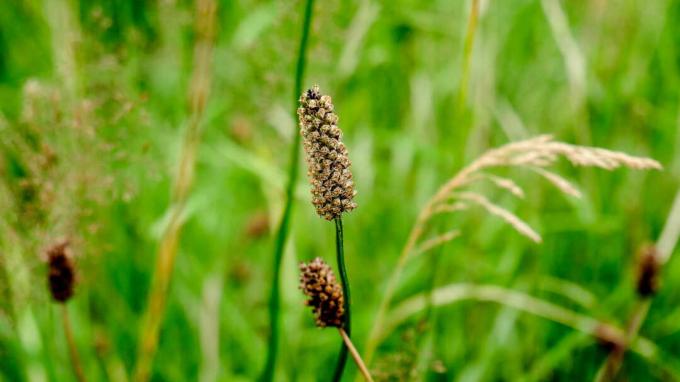
thyme
thyme As a medicinal herb, it is mostly used as honey, tea, mouthwash or as an ointment. If you have a cold, it is advisable to gargle thyme-based mouthwash after getting up and before going to bed. Either lukewarm tea or lukewarm water with a few drops of pure thyme oil can be used for this. For general relief and treatment of cold symptoms, thyme tea is also highly recommended.
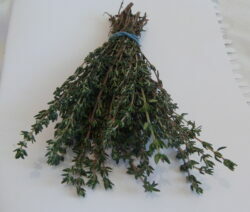
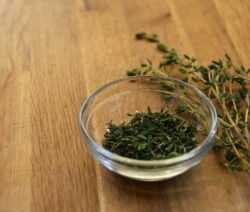

sage
Also the sage Like thyme and ribwort, it has been used as a medicinal herb for a long time. Sage is highly aromatic and contains more than 50 ingredients. Some of the tannins, such as rosmarinic acid, have antibacterial and antiviral properties. Others are responsible for the anti-inflammatory and mucosal protective properties. As a medicinal plant, sage can do a lot of good when you have a cold. A sage tea or a self-cooked sage-gargle mixture is particularly pain-relieving for a sore throat.

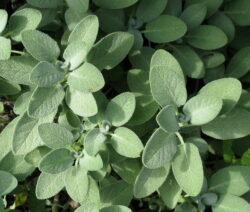
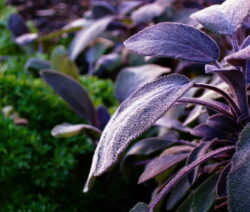
Linden tree
the Linden tree has been known as a medicinal plant since the Middle Ages. The flowers of the summer lime tree are used (Tilia platyphyllos) and the winter linden (Tilia cordata), both of which bloom in June and July. A tea with Linden blossom relieves throat irritation and sore throat and has an anti-inflammatory effect. Linden blossoms can also be used well for inhaling when you have a cough or runny nose. As a bath additive, linden blossoms also have a calming, sleep-promoting and beneficial effect.

licorice
The root of the Licorice (Glycyrrhiza glabra) is not only used to make liquorice. It is also considered to be an excellent home remedy for colds with a persistent cough. Licorice mainly contains saponins, phytosterols and flavonoids as active ingredients. These have both an antiviral and an antibacterial effect, which in the best case scenario can even reduce the duration of the cold.
Licorice is used as a tea or in the form of medicinal licorice. Licorice teas can be mixed with other medicinal herbs such as thyme or ribwort.

fennel
fennel has a particularly calming and antispasmodic effect. Fennel tea can be the right home remedy, especially when the muscles are already strained and painful due to strong coughing. In addition, fennel has an inhibiting effect on inflammation and relieves the associated pain on the mucous membranes.
Although fennel tea is more known as a home remedy for digestive disorders than for colds, the medicinal herb is also suitable for relieving coughs and runny nose. It can not only be used as a tea, but can also be added when inhaling. The fennel is used fresh or dried.

Whichever medicinal herb you choose - it is and remains particularly important that you do something good for your body when you catch a cold. Make sure you get enough rest and sleep and wrap yourself up warm. A little honey in your home-brewed herbal tea often works wonders. If the symptoms do not improve or are very severe, a doctor should of course be consulted.
Plantura wishes you a speedy recovery!
